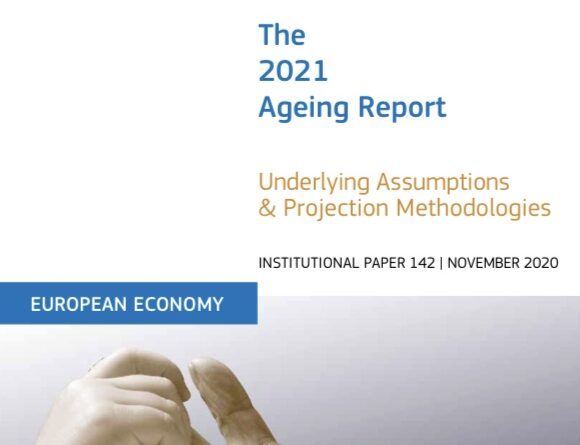The 2021 Ageing Report: Underlying Assumptions and Projection Methodologies
By Directorate-General for Economic and Financial Affairs & Economic Policy Committee
With a view to ensuring the sustainability of public finances in the EU, the ECOFIN Council charged the Economic Policy Committee (EPC) with producing a new set of long-term budgetary projections by 2021, on the basis of new population projections to be provided by Eurostat. Safeguarding the sustainability of public finances requires that the analysis is based on reliable, comparable information on possible challenges to fiscal sustainability, including strains caused by future demographic changes, in particular population ageing.
The EPC and the Commission’s Directorate-General for Economic and Financial Affairs (DG ECFIN) subsequently developed a work programme with arrangements for the budgetary projections and the preparation of the underlying assumptions and methodologies (see Graph 1 for details).
This report sets out the macroeconomic assumptions and methodologies to be used for the age-related expenditure projections for all Member States. These will form the basis for calculating projected expenditure on pensions, healthcare, long-term care and education in the sixth Ageing Report, to be presented to the ECOFIN Council in spring 2021.
The long-term projections show where (in which countries), when (2019-2070) and to what extent ageing pressures will accelerate as the baby boom generation retires and life expectancy in the EU continues to increase. They are thus helpful in highlighting the immediate and future policy challenges that governments face as a result of demographic trends. The report provides a very rich set of comparable information, including alternative assumptions (sensitivity scenarios), at country level. Comparable and reliable underlying assumptions are crucial, since the projections cover a long time span (until 2070).
The Ageing Report projections feed into a range of policy debates and processes at EU level. In particular, they are used in the coordination of economic policies (the European Semester, multilateral budgetary surveillance and the assessment of public finance sustainability) to identify relevant policy challenges and options. In addition, the projections assist the analysis of the impact of population ageing, including on the labour market and potential economic growth.
Read book “here”











